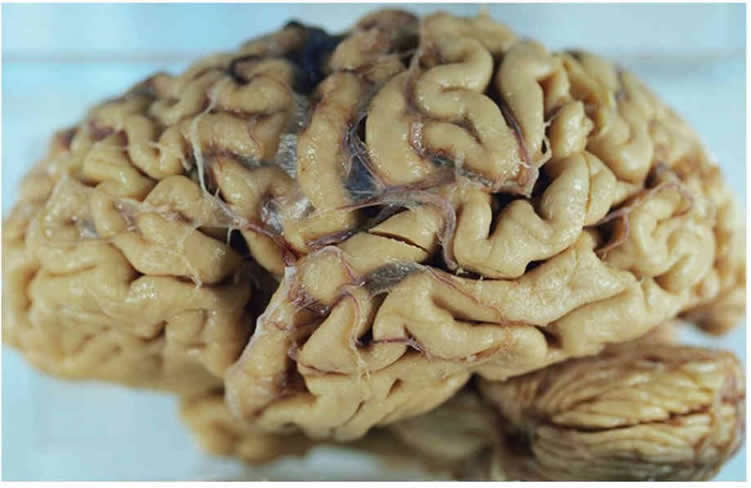A ‘gene signature’ that could be used to predict the onset of diseases, such as Alzheimer’s, years in advance has been developed in research published in the open access journal Genome Biology.
The study aimed to define a set of genes associated with ‘healthy ageing’ in 65 year olds. Such a molecular profile could be useful for distinguishing people at earlier risk of age-related diseases. This could improve upon the use of chronological age and complement traditional indicators of disease, such as blood pressure.
Lead author James Timmons, from King’s College London, UK, said: “We use birth year, or chronological age, to judge everything from insurance premiums to whether you get a medical procedure or not. Most people accept that all 60 year olds are not the same, but there has been no reliable test for underlying ‘biological age’.
“Our discovery provides the first robust molecular ‘signature’ of biological age in humans and should be able to transform the way that ‘age’ is used to make medical decisions. This includes identifying those more likely to be at risk of Alzheimer’s, as catching those at ‘early’ risk is key to evaluating potential treatments.”
The researchers analyzed the RNA of healthy 65 year old subjects, and used the information to develop a signature of 150 RNA genes that indicated ‘healthy ageing’. The signature was found to be a reliable predictor for risk of age-related disease when studying RNA from tissues including human muscle, brain and skin.
With this RNA signature, they developed a ‘healthy age gene score’ which they used to test and compare the RNA profiles of different individuals, and demonstrated that a greater score was associated with better health in men and women.
The researchers studied RNA from healthy 70 year old subjects and analyzed follow-up health data over two decades. Despite all subjects being born within a year of each other, their RNA at around 70 years of age demonstrated a very wide distribution in ‘healthy age gene score’, varying over a four-fold range. This variation was shown to link to long term health. A greater gene score was also associated with better cognitive health and renal function across a 12 year span – both important determinants of mortality.
In particular, they demonstrated that patients diagnosed with Alzheimer’s Disease had an altered ‘healthy ageing’ RNA signature in their blood, and therefore a lower healthy age gene score, suggesting significant association with the disease.
Timmons added: “This is the first blood test of its kind that has shown that the same set of molecules are regulated in both the blood and the brain regions associated with dementia, and it can help contribute to a dementia diagnosis. This also provides strong evidence that dementia in humans could be called a type of ‘accelerated ageing’ or ‘failure to activate the healthy ageing program’.”

Given that early intervention is important in Alzheimer’s and there is a need to identify those at greatest risk, the authors say that their ‘healthy age gene score’ could be integrated to help decide which middle-aged subjects could be offered entry into a preventative clinical trial many years before the clinical expression of Alzheimer’s.
Source: Joel Winston – Biomed Central
Image Credit: The image is in the public domain
Original Research: Full open access research for “A novel multi-tissue RNA diagnostic of healthy ageing relates to cognitive health status” by Sanjana Sood, Iain J. Gallagher, Katie Lunnon, Eric Rullman, Aoife Keohane, Hannah Crossland, Bethan E. Phillips, Tommy Cederholm, Thomas Jensen, Luc JC van Loon, Lars Lannfelt, William E. Kraus, Philip J. Atherton, Robert Howard, Thomas Gustafsson, Angela Hodges and James A. Timmons in Genome Biology. Published online September 7 2015 doi:10.1186/s13059-015-0750-x
Abstract
A novel multi-tissue RNA diagnostic of healthy ageing relates to cognitive health status
Background
Diagnostics of the human ageing process may help predict future healthcare needs or guide preventative measures for tackling diseases of older age. We take a transcriptomics approach to build the first reproducible multi-tissue RNA expression signature by gene-chip profiling tissue from sedentary normal subjects who reached 65 years of age in good health.
Results
One hundred and fifty probe-sets form an accurate classifier of young versus older muscle tissue and this healthy ageing RNA classifier performed consistently in independent cohorts of human muscle, skin and brain tissue (n = 594, AUC = 0.83–0.96) and thus represents a biomarker for biological age. Using the Uppsala Longitudinal Study of Adult Men birth-cohort (n = 108) we demonstrate that the RNA classifier is insensitive to confounding lifestyle biomarkers, while greater gene score at age 70 years is independently associated with better renal function at age 82 years and longevity. The gene score is ‘up-regulated’ in healthy human hippocampus with age, and when applied to blood RNA profiles from two large independent age-matched dementia case–control data sets (n = 717) the healthy controls have significantly greater gene scores than those with cognitive impairment. Alone, or when combined with our previously described prototype Alzheimer disease (AD) RNA ‘disease signature’, the healthy ageing RNA classifier is diagnostic for AD.
Conclusions
We identify a novel and statistically robust multi-tissue RNA signature of human healthy ageing that can act as a diagnostic of future health, using only a peripheral blood sample. This RNA signature has great potential to assist research aimed at finding treatments for and/or management of AD and other ageing-related conditions.
“A novel multi-tissue RNA diagnostic of healthy ageing relates to cognitive health status” by Sanjana Sood, Iain J. Gallagher, Katie Lunnon, Eric Rullman, Aoife Keohane, Hannah Crossland, Bethan E. Phillips, Tommy Cederholm, Thomas Jensen, Luc JC van Loon, Lars Lannfelt, William E. Kraus, Philip J. Atherton, Robert Howard, Thomas Gustafsson, Angela Hodges and James A. Timmons in Genome Biology. Published online September 7 2015 doi:10.1186/s13059-015-0750-x






